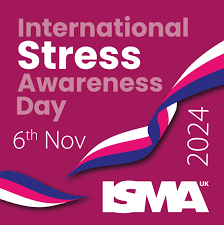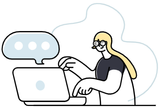Stress Awareness Week (4-8 November 2024)

Your Guide to Managing Stress in a Hectic World
As we step into , it's crucial to acknowledge that stress has become an unwelcome companion in many of our lives. In a world that seems to move at an ever-accelerating pace, finding effective ways to manage stress isn't just beneficial – it's essential for our wellbeing.
The Modern Stress Epidemic
Recent studies show that stress levels have reached unprecedented heights, affecting both our mental and physical health. While we can't always control our circumstances, we can control how we process and respond to them. This is where the transformative power of journaling comes into play.
The Science Behind Journaling
In his illuminating book "Atomic Habits: An Easy & Proven Way to Build Good Habits & Break Bad Ones," James Clear explores how small, consistent actions can lead to remarkable changes. This principle applies perfectly to journaling as a stress management tool. Just as Clear describes how tiny habits compound over time, regular journaling creates a cumulative effect on our mental wellness.
Physical vs. Digital Journaling: Finding Your Perfect Match
The Power of Pen and Paper
Traditional journaling offers a tactile experience that many find grounding. The physical act of writing can help:
- Slow racing thoughts
- Improve memory retention
- Create a stronger emotional connection to your writing
- Provide a screen-free sanctuary
The Digital Advantage
Online journaling platforms offer unique benefits:
- Accessibility anywhere, anytime
- Easy organisation and searchability
- Ability to include multimedia elements
- Secure backup of your thoughts
- Option to share selected entries with trusted communities
The Hybrid Approach
Many people find that combining both methods works best. As discussed in the "Ten Percent Happier" podcast episode "The Science of Journaling for Mental Health," with Dr. James Pennebaker, this flexible approach allows you to leverage the benefits of both worlds while adapting to your daily circumstances.
Practical Journaling Strategies for Stress Relief
1. Morning Brain Dump (5-10 minutes)
- Write whatever comes to mind
- Don't edit or judge
- Release mental clutter before starting your day
2. Stress Tracking
- Identify triggers
- Document physical symptoms
- Note effective coping strategies
3. Gratitude Practice
- List three things you're thankful for
- Include small, everyday moments
- Focus on the present
4. Problem-Solving Pages
- Describe the stressful situation
- List possible solutions
- Create action steps
Making Journaling Work for You
Choose Your Tools
- Select a journal that brings you joy
- Find a comfortable writing implement
- Set up your digital platform
- Create a welcoming writing space
Establish a Routine
- Start with just 5 minutes daily
- Link it to an existing habit
- Set reminders if needed
- Be flexible with timing
Overcome Common Obstacles
- "I don't have time": Start small
- "I don't know what to write": Use prompts
- "I can't maintain consistency": Track your progress
- "I'm not good at writing": Remember it's for you, not for others
The Role of Community
While journaling is often a solitary practice, sharing experiences with others who understand can be incredibly powerful. This is where online journaling communities become valuable, offering:
- Support and encouragement
- Shared experiences
- Writing prompts and challenges
- Accountability partnerships
Measuring Progress
Look for these signs that your journaling practice is helping:
- Improved sleep quality
- Better emotional awareness
- Reduced anxiety symptoms
- More effective problem-solving
- Increased self-compassion
Digital Tools to Enhance Your Practice
Modern journaling platforms offer features that can deepen your practice:
- Mood tracking
- Customisable templates
- Progress analytics
- Privacy controls
- Community connection options
Creating Sustainable Change
Remember that managing stress through journaling is a journey, not a destination. Some days will feel more productive than others, and that's perfectly normal. The key is consistency over perfection.
Looking Forward
As we navigate through Stress Awareness Week and beyond, consider journaling as your personal stress management toolkit. Whether you prefer the traditional approach of pen and paper or the convenience of digital platforms – or a combination of both – the important thing is to start.
Your Next Step: Join Our Community
Ready to transform your relationship with stress through the power of journaling? Join our supportive online community at Sharings.Me, where you'll find:
- Daily writing prompts
- Expert guidance
- Supportive fellow journallers
- Resources for stress management
- Private spaces for reflection
- Optional sharing features
Don't let stress control your story. Take charge of your narrative today by visiting Sharings.Me and joining our community of mindful journallers. Together, we can build resilience, find peace, and create positive change – one entry at a time.




